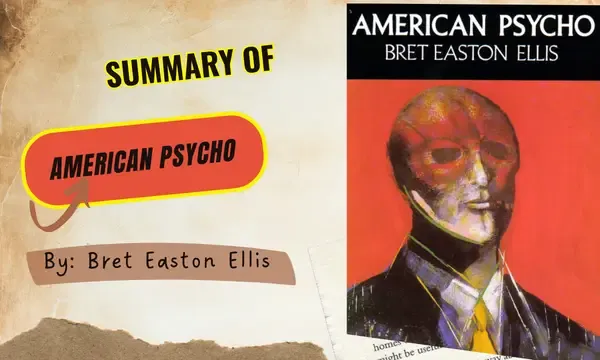American Psycho by Bret Easton Ellis explores the dark underbelly of American society through the eyes of Patrick Bateman, a wealthy and successful investment banker who leads a double life as a sadistic serial killer.
 |
| Summary of American Psycho by Bret Easton Ellis |
The general idea of the American Psycho book
- Dehumanization of Modern Society: The book portrays the dehumanizing effects of consumerism, materialism, and societal expectations, showcasing how individuals like Bateman become desensitized to violence and lose their sense of empathy.
- Existentialism and Identity Crisis: Bateman grapples with his own identity and struggles to differentiate himself from his peers, leading to a profound existential crisis. Ellis examines the shallow nature of personal relationships and the search for meaning in a world devoid of authenticity.
American Psycho book chapters
American Psycho does not have traditional chapter titles or sections. Instead, it follows a continuous narrative structure. The story is divided into various segments that depict Bateman's interactions, inner thoughts, and violent episodes.
American Psycho conclusions
- The Illusion of Success: Ellis critiques the notion of success as defined by material wealth and societal status, suggesting that the pursuit of these goals can lead to a loss of humanity and moral decay.
- The Fragility of Identity: The novel emphasizes the precarious nature of personal identity, showing how Bateman's obsession with appearances and conformity erodes his sense of self, blurring the line between his public persona and his dark inner desires.
About the author of American Psycho
Bret Easton Ellis is an American author known for his provocative and controversial works. He gained recognition in the 1980s for his novel Less Than Zero and has since explored themes of alienation, superficiality, and violence in many of his works. Ellis's writing style often employs dark satire and sharp social commentary.
Read more:
Summary of Dune by Frank Herbert
Summary of Neuromancer by William Gibson
American Psycho book in relation to other books
American Psycho stands out as a unique exploration of the dark side of American society. While other books have tackled similar themes of consumerism and identity, Ellis's novel is particularly notable for its graphic and visceral portrayal of violence and its scathing critique of the shallowness of the 1980s yuppie culture.
American Psycho book audience
The book is intended for mature audiences who can handle explicit and disturbing content. It appeals to readers interested in social critique, psychological exploration, and the examination of the human condition.
Reception or Critical Response to the Book
It polarized critics, with some praising its satirical elements and social commentary, while others condemned it as gratuitous and morally repugnant. Nevertheless, the novel has since gained a cult following and is regarded as a significant work of contemporary literature.
American Psycho book publication date
American Psycho was published by Vintage Books in 1991.
Recommendations for other books
If you enjoyed American Psycho and are interested in similar themes and styles, you may consider reading the following books:
- "Less Than Zero" by Bret Easton Ellis: Ellis's debut novel, which also explores themes of alienation and moral emptiness among affluent youth.
- "Fight Club" by Chuck Palahniuk: A novel that delves into the dark side of masculinity and societal discontent.
- "Lolita" by Vladimir Nabokov: A classic work that tackles themes of obsession, desire, and the darker aspects of human nature.

